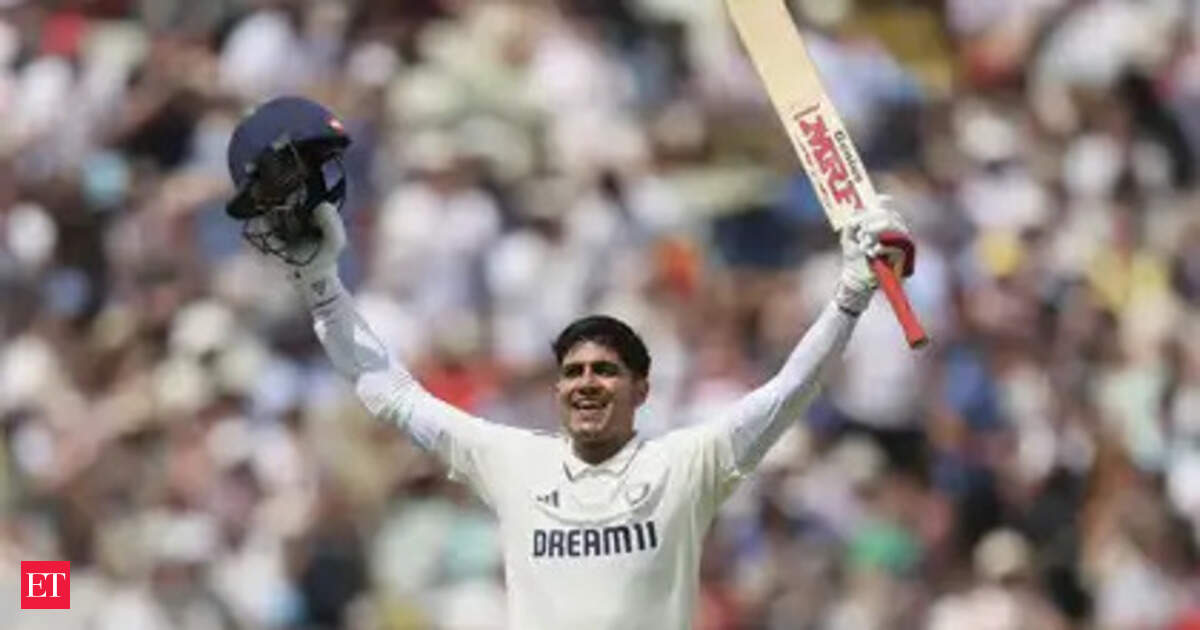Let’s face it, no one wants to be vanilla when they grow up, and those who do are unlikely to admit to it publicly. Because it is associated with a lack of colour, even though any artist will tell you that without white, neither shade nor nuance exists. Because it is wed to the idea of simplicity, no host wants to serve it up, fearing they will come across as pennypinchers. Because it embodies being uncomplicated, it suffers from being perceived as lacking in complexity.
In today’s world, where gratification delayed is gratification denied, where such a premium is placed on standing out in a crowd and the pursuit of excitement is a legitimate way of life, what chance does vanilla have? If an advertising executive were looking for a poster boy for vanilla in Indian cricket — that commodity that sells to all segments at all times—she should look no further than Shubman Gill. Before his supporters, especially younger ones whose sense of outrage is only matched by their online following, are up in arms, it’s worth clarifying that this is meant purely as a compliment.
Gill, the batsman, is aesthetically the easiest right-hander on the eye in world cricket at the moment. He stands tall at the crease, neither rigidly upright nor stooped, but going with the shape that his firm and supple spine has naturally given him. Gill’s head is still as he waits for the ball, he does not fidget, and there is a precise economy to the movement of his feet, decisively forward or back, that dictates what his hands must do for the middle of the bat to meet the ball.
Gill essays every shot in the book, most with a polish that belies his relative youth and inexperience, but he does not play favourites, simply choosing the most appropriate response to the question the bowler has asked with a particular delivery. Gill’s flannels are a Surf-tinted bluewhite, uncreased and form-fitting; his conspicuous lack of facial hair matches his short crop, and his tattoos are well hidden in all his public appearances.
If you are a fan of stereotypes, Gill is what you would call a good boy, the kind who might be cast as the teacher’s pet or a suitable boy in Bollywood. But, of course, judging him for his conformity is as much of a fool’s errand, and would be as big a mistake as swinging to the other end of the spectrum and being automatically suspicious of or looking down at someone who does not fit your idea of mainstream. While perception and its consequences are unavoidable to most, Gill is not one of them. He is successful, young, financially set for the rest of his life, at the top of his profession, which also happens to be his passion, and has the rare opportunity to be true to himself.
KNOW YOURSELF
But, to live his best life, to find his full stretch potential, Gill will find out very quickly that there is no substitute for knowing himself. In his three-game tenure as Test captain, Gill has already been called out for not being remonstrative enough on the field in one match, allowing the game to drift in another and needling the wrong man in the opposition camp in the third.When Gill gesticulated aggressively to England’s Zak Crawley at the third Test match at Lord’s, telling him to “grow a f***ing pair of balls”, something looked distinctly off, and predictably it backfired. In all his international and IPL appearances thus far, nobody had seen this side of Gill. In the heat of the battle, true character can reveal itself, unbidden, but this looked more like a case of trying too hard to be something he was not, even trying to be what he thought his followers expected of him.
IT’S DIFFERENT
When Virat Kohli tells his bowlers to give the opposition “60 overs of hell” and spends every minute on the field spoiling for a fight or winding up the crowd, it is an extension of his personality, or at the very least his cricketing persona, not an effort he makes.
Kohli’s aggression, while mostly controlled, is rarely contrived. And for this reason, it worked best for him and the teams he led. Rahul Dravid can be Indira Nagar ka gunda in an ironic commercial long after retirement, but he knew better than to play to that section of the gallery when his primary role was to win cricket matches. Dravid is as aggressive as any cricketer to have played the game, but his brand is characterised by relentlessness, concentration, defiance and, ultimately, results.
Gill’s out-of-character performance seemed to be reflected in his team. Remember Washington Sundar talking about how special it would be when (not if) India won the Lord’s Test on the fifth day? Sportsmen projecting confidence that borders on cockiness is nothing new, but when they believe their own hype, the game, just as life, has a habit of coming back to bite them where they are most vulnerable, to remind them of their place in the larger scheme of things. England beat India by 22 runs in the third Test.
The sooner Gill embarks on his inward journey of self-discovery, the smaller the price he will have to pay for lessons learnt along the way. The more honestly Gill embraces his “incomparable uniqueness, it also implies becoming one’s own self,” as Carl Jung put it, although he was speaking to something much larger and more profound than the captaincy of a cricket team.
In other words, if Gill is indeed vanilla in an age of caramel sea salt, bacon and wasabi ice creams, he should neither be apologetic about it nor fear that it will make him more ordinary. After all, every global audit tells us that vanilla is the most bought flavour on the shelf because it is unfailingly true to itself and refuses to sell its soul.
(The writer is former joint editor-in-chief, Wisden India)




